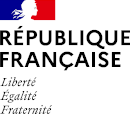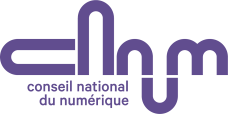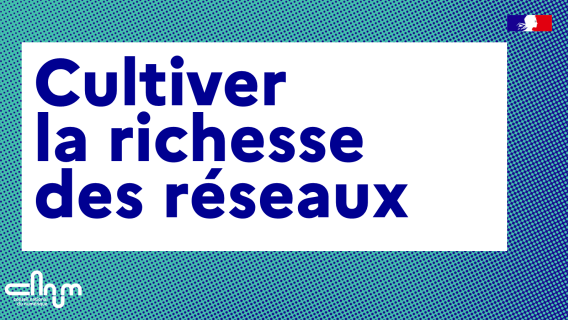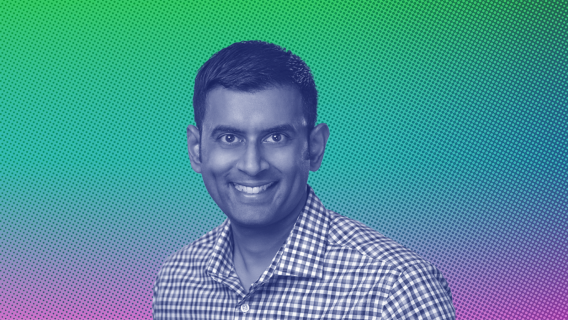A participatory culture allows more voices to be heard, interview of Henry Jenkins
Henry Jenkins is the Provost Professor of Communication, Journalism, Cinematic Arts and Education at the University of Southern California. He arrived at USC in Fall 2009 after spending more than a decade as the Director of the MIT Comparative Media Studies Program and the Peter de Florez Professor of Humanities. He is the author and/or editor of twenty books on various aspects of media and popular culture, such as Participatory Culture: Interviews, Popular Culture and the The Civic Imagination : Case Studies of Creative Social Change, and Comics and Stuff. Jenkins is also the principal investigator for The Civic Imagination Project, funded by the MacArthur Foundation, to explore ways to inspire creative collaborations within communities as they work together to identify shared values and visions for the future.
As a conclusion of our work on digital education and knowledge and opening for our next topics on collective narrative or new forms of citizenship engagements, we found the concept of participatory culture very interesting and wanted to know more about its theory and implications in practice, especially from a political point of view.
What do you mean by participatory culture?
I would like to start with a few words on my background: I'm not trained as an educational researcher, but as a media scholar and as a student of how people and audiences of all kinds engage with popular culture. I got pulled into a MacArthur digital media and learning network 16 years ago. MacArthur was looking for scholars who were interested in questions of participation, informal learning, knowledge production, not in traditional educational research. In the first White Paper issued by MacArthur, I wrote about confronting the challenges of our participatory culture. Digital Media and Learning was a 10 year initiative by the MacArthur Foundation, bringing together everyone from museum curators and librarians to educational researchers and psychologists… The idea of my white paper was to review the literature that was out there about young people’s cultural lives, to see what educators might learn by paying more attention to their lives outside of school. I came to this project from having done a lot of research on fans and gamers. I've since continued to work with MacArthur over these past 16 years. Now our focus is on the civic, on political participation and now not just of young people, but more broadly within a networked culture.
Back to your question, at the time I wrote for the MacArthur White Paper, more than half of American young people were creating media and a sizable percentage of them were sharing the media they produced beyond their immediate family or their classes at school. We were looking at a culture where young people were not simply consumers, but also producers. Those numbers have continued to grow even among people who don't have ongoing access to networked computing outside of schools and public libraries. In the US this year, with Covid and the shutdown, large numbers of young people have been cut off from learning online, as the system relied on schools and public libraries for access. This made more visible the inequalities of access to new media, which have to be signaled. I now proceed consistently with the phrase “a more participatory culture.” It is not that everyone gets to participate. It is not that we have a digital generation that has all been raised in a world where digital technologies are taken for granted. It is that a significant number of young people are raised in a context where they have access to these tools and others are cut off from them almost altogether. It's a world where technical access is not necessarily aligned with access to other resources, to mentorship, to a sense of empowerment or entitlement to participate, to the other skills that might be necessary in order to participate, so the gaps become more and more visible.
What I mean by a participatory culture is a world where more people than ever before have the means of cultural production and circulation. In my book Spreadable Media: Creating Value and Meaning in a Networked Culture (2013), there is a really important part of what I mean by participation. It's not enough to make media, it's also important to be able to share it in a meaningful way with some larger community. In some ways, young people and all of us play a more active role in making selections of what media we pass along through our networks. That becomes a visible problem in the US today as we're seeing so much misinformation and disinformation being passed through those networks. Therefore, skills of discernment become necessary to weigh choices about what to circulate. Alert curation and active circulation are central parts of what I mean by participatory culture.
What I mean by a participatory culture is a world where more people than ever before have the means of cultural production and circulation.
We outlined an idealized version of participatory culture in the White Paper which assumes a world where there are relatively low barriers to entry, where there are informal structures of learning, where more experienced people teach newbies... I put it that way because age hierarchies are often subverted in the kinds of online communities that I study: you could be really good as a fan fiction writer by 14 and giving advice to 35, 40 year old people. The hierarchies that we assume in a school setting, that are assumed by academic learning, are not necessarily the way learning flows or operates in these online communities.
There is a sense that the community values what you create. This is something I take from fandom where fans always have assumed that you may not be a fan writer yet, but that everyone has a story within them and under the right support system, you will find a way to get that story out, whether it's writing it yourself or sharing it with someone else who can write. The community is there to support its members’ needs to grow and learn. However, not every community functions that way. There's a lot of drama, a lot of darkness in these online communities as well. I think that's important to point out, but I think at the same time, these communities have a set of values or commitments that they do strive as a whole to achieve those goals.
From the literature on Legitimate Peripheral learning, I take the distinction that there is a difference between watching and preparing to participate and not yet participating versus being systematically excluded from participation. Most of these participatory communities are cases where people are learning, getting their courage up, figuring out how to participate. They are not places where they're systematically excluded from participation. On the contrary, hierarchical structures of cultural and knowledge production assume only certain people are entitled to produce knowledge and information, and others are precluded by degrees and status and other things. A participatory culture is one where many people have the ability to participate, and the goal is to allow more voices to be heard.
How to ensure discernment within the participatory culture?
I think this is one of the most urgent needs. The question of how schools should teach people skills about making discernment, judgements about the reliability and accountability of information is an important debate. At the most basic level, we've got to figure out how to help anyone in the society parse the quality of information they're receiving and to make meaningful decisions about its reliability. We individually have to be accountable for the quality of information we put into circulation. If we are producers of media, then we have the ethical responsibility as a producer to carefully weigh the decisions we're making about what to produce. If we're circulators and distributors of information, we have to weigh the quality of information we're putting out into the world. So partially that's holding ourselves responsible and making intentional decisions. We've got to come back to the idea that: if I'm putting information out that impacts the quality of the life of my community, then I should be making thoughtful decisions about is it reliable? Is it ethical? Is it socially destructive?
Besides, you need the community to be pushing back on the quality of information. I'm a big fan of Pierre Levy and his ideas of collective intelligence, a model where every piece of information that's put out there is contested and people from different kinds of knowledge bases are asking hard questions about it before it's passed along and accepted as established wisdom. I saw that very much when I wrote about spoiling in the Survivor community in my book Convergence culture: Where old and new media collide (2008), where people were trying to figure out information about Survivor contestants, and they did so with a high degree of accuracy because every piece of information in circulation was being contested and weighed carefully.
On the other hand, conspiracy theories today seem to function like improv. It's a "yes and" approach, not an ‘is that true’ approach that people are posing when they're responding to the information that's put out there. Schools have to teach us some of these skills and responsibilities and that means thinking deeply about questions of wisdom, about how we make sense of things, « what's the sniff test » as my journalism colleagues say. When you look at a piece of information, you sniff it and see if it seems stale, if it seems wrong in some way, that it's already gone bad. Every contribution should be valued appropriately. In a participatory culture community like a fan fiction writing community, people give feedback and sometimes it can be fairly critical feedback on writing. But it's because you get feedback and a systemic way that you get better. You improve, you grow and it's a sense that if you withheld that feedback you would be damaging the development of a participant. And I think that's very different from the world of « yes and » that we see in the conspiracy theory land, where every statement seems to be taken at face value and you don't want to demean someone’s contributions so all kinds of unreliable information and wild speculation gets accepted as a legitimate contribution to knowledge within that community. That's a problem that we want to address. We need to think about the criteria for how we weigh the quality of information we surround ourselves with.
What are the nature of informal learning and peer networks?
There are multiple kinds of expertise. The expertise of a nurse is different from the expertise of a doctor, but as a patient I would like to hear from both. I'd like to understand the different ways nurses and doctors understand the body. A race car driver and a garage mechanic have different expertise about cars, but they both contribute something valuable. Ideally, in a participatory culture, there is not a fixed disciplinary boundary, there are rather contributions from people who know things that are contested or challenged by other people who know things and they either supplement each other or they contradict each other.
In a fan community, each participant may bring something that helps the group to collectively understand the TV show in different ways, and within those knowledge communities there can be conflict. Two different psychologists might arrive at a different place about why this fictional character behaves the ways they do, and so those discussions supplement each other, but they also challenge each other. It is different at school: no matter how democratic I seek to be, as a professor I'm still the professor and my students are still my students and they may bring different knowledge to the table, but it's only legitimate insofar as I allow it to be legitimated by my voice as an instructor. I feel that every time I'm leading a discussion, I have to be very careful when I support someone's claims, when I challenge them and make sure that there are not systemic and implicit biases in the choices I'm making. Where there is power in the hands of a professor, it's very different from meeting on equal grounds in a fan discussion community where those different expertise can be read against each other.
For Convergence culture, I interviewed this young woman who called herself Florish about fanfiction. She wrote her first novel at 13. By 14, she helped establish a new fanfiction site where she was helping to provide editorial feedback to massive numbers of contributors. Now, she has her podcast, Fansplaining and she works as the Chief Participation Officer for a media company in Los Angeles where she advises leading brands and franchises about their fan relationships. Being empowered as possessing a kind of expertise, given an active leadership role at a very early age opened the doors for her to become a top professional and it's been fascinating to watch her development over the last almost 20 years. Her case also says something about the system of informal learning around writing and reading that the fanfiction community represents. I just published a piece on Archive of Our Own, which is the largest fan-run fanfiction site in the world. The article pulls together all of the research over the last 15 years about informal learning and fanfiction writing communities, and the ways in which fanfiction writing gets young people reading more closely. There's a close reading practice that's informally taught through that community.
It is also a site for mentorship over writing. Unlike in a classroom where one teacher grades your paper and puts « good job » at the top and gives you feedback, this is a place where peer critique and informal mentorship is built into the system and people grow as writers in extraordinary ways and they're holding each other accountable. If we do not think of fanfiction as knowledge, it is a space where there is a lot of information you're meant to know, and members hold each other accountable for mistakes in their use of that knowledge. It's a systemic production of culture that relies on skills we value in the classroom, but which we often do a bad job teaching. Close reading and critical writing are not taught especially well in American schools. I won't speak of French schools, but American schools fail our students routinely. On these grounds, I think fanfiction communities generally do a better job, and in those communities that are more knowledge driven, similar things can and often do take place now.
The problem is that not every kid finds his way into these communities. How do we make these connections so that every kid finds their way into a community of informal learning that is valuable to them, that picks up on their passions, that helps them identify – and build on -- their skills and competencies, and that can be meaningfully connected into the pipeline for schools, jobs, civic life, and so forth? In this regard, Wikipedia is a good example of the self-correcting nature that a good participatory community culture community builds into its practices. In a project we did with schools around Moby-Dick, students were fighting desperately to get information they'd identified into Wikipedia, sometimes winning battles, sometimes not, but with a deeper understanding of how knowledge is produced through Wikipedia and with a real serious sense of responsibility for making sure that the information they were putting there was accurate. That's to us a success story, because Wikipedia has its own system of weighing truth claims, accuracy and contesting knowledge.
What could be the political implications of a participatory culture?
We've been doing work lately on what we call the Civic Imagination. In Popular Culture and the Civic Imagination: Case Studies of Creative Social Change (Jenkins, Henry, Peters-Lazaro, Gabriel, Shresthova, Sangita, 2020), there are thirty case studies of political movements around the world and their engagement with popular culture and participatory culture. Practicing Futures: A Civic Imagination Action Handbook (Gabriel Peters-Lazaro and Sangita Shresthova, 2020) is a casebook based on our workshops.
In some cases, mobilization may come from a literary text. We took the case of the Harry Potter Alliance as a starting point for conversation around political issues. The organization actively educates participants on things like fair trade chocolate and child labor, and the question of whether the Warner Brothers studio that produces the films and runs the amusement attractions around Harry Potter should be accountable for how it sources its chocolate. This issue became the focus of a two to three yearlong campaign, which was as much about educating its members about fair trade more generally, as it was the specific target which is somewhat symbolic but very important to that community. Ultimately their campaign got the corporation to shift its policies. Therefore, the Harry Potter Alliance is not only using popular culture for mobilization but also for an educational process. If it stayed at the surface, focusing only on the fictional elements of the story, I think there would be problems. But using that interest that young people have in Harry Potter to dig deeper allows people to have important conversations about the world around them. I recently attended the Hermione Granger Leadership Academy hosted by the Harry Potter Alliance. They had participants from Black Lives Matter, from the Dreamers, from environmental justice movements, from gun reform movements, and other movements that have deep involvement by young activists. Participants spent two days online last summer training young activists on all of the tactics and practices of contemporary political life. However, the fan activists brought a particular emphasis on joy, resilience, sustainability by bringing more playful elements into these political movements.
Also, this summer in the US, K pop fans were doing really politically interesting things regarding Black Lives Matter. Why was that possible? First of all there's a generational commitment to K pop that engages so many people in the US. Secondly, the K pop fans learn technical competencies such as knowing how voting systems work, how registration systems work, how algorithms work, that's shared knowledge within that community. Third, there has been this practice of Korean artists appropriating blackness in various ways and in the US, young black women in particular used podcasts, blogs and videos to educate their community, both in the US and Korea about race, racism, and cultural appropriation in ways that transformed the community's thinking on those issues. At the end of the day, both American and Korean youth worked together to fight against racism, despite language or cultural barriers.
The Civic Imagination Project has been going around to all kinds of communities from middle schoolers to senior citizens and getting them to think together about the future using worldbuilding as a process. Worldbuilding is one of those things that is just everywhere when you look at contemporary youth culture online. It's something people know how to do. And We get a group of people together in a room to imagine the world of 2060. We work through transportation, food, medical care, education. We come to a new understanding of what the common grounds are within a community. These communities may be sharply divided when they talk about the present. But we try to go forward enough in the future that they can figure out what they share in common without partisanship getting in the way.
Fake news is fiction that passes itself off as real, what we need is fiction that aknowledges it's fiction and speaks to the real.
What we're always asking in our workshops is what do you want in the ideal world and how do we get there? As we do so, there is an awareness that we are imagining together, that the world we are describing is ideal but not yet real, that this is something we will need to work to achieve together. While fake news is fiction that passes itself off as real, what we need is fiction that acknowledges it's fiction and speaks to the real. And that's something Stephen Duncombe makes a point of when he writes about ethical spectacle in Dream : Imagining Progressive Politics in an Age of Spectacle.One of the criteria for an ethical spectacle is transparency : it acknowledges its fictiveness even as it's trying to deliver certain truths about the real world. There are a lot of examples of self-educating communities that are holding each other accountable, that are using knowledge, that are teaching each other and moving towards civic participation. The statistics that came out of the MacArthur Youth and Participatory Politics network show us that young people are more likely to vote if they have already participated in online ways in political life…
In France, we see more and more political personalities on social media such as Twitch. Should we gamify political life?
There is an important distinction between gamification and game based education. The latter is based on the intrinsic pleasure of learning things that pay off in a game. Indeed, the game establishes roles, rules and goals that allow you to understand why what you were learning has meaning and value. Schools often disconnect what they're teaching students from any practical application. Gamification is based on extrinsic value, it gives you stars or points that are abstracted from the goals of the game and certainly removed from the application of knowledge. This is quite the opposite of what the Harry Potter Alliance is doing: they start with something you care about and then they will show you how it's connected to debates about prison reform for instance. The “game” is the starting point into discussions of politics and they offer a clear pathway that motivates young people to participate in social change: it's the opposite direction from gamification, because it is driven by things that are intrinsically valuable to the individuals. But we're expanding their value system so that they come to see voting as a behaviour that is valuable to them. That is about issues they care about. In 2016, we saw lots of young people vote for Trump because they thought it was a joke, not because they supported far right politics, They wanted to screw up the system because it felt meaningless to them, because they were angry at schools which had failed them.
Pop culture is a significant new language, a shared language, among young people all over the planet. So now if you go to a March on Washington, say, one of the women’s marches, you're going to see Princess Leia, you're going to see women dressed as Handmaids from Handmaid's Tale, you're going to see dozens of popular media, references all kinds of things derived from fandom that have been figured into political speech. I haven't systematically looked at France, so I don't know what the cultural references are there. People are using these diverse references to popular culture in politics because they constitute the shared vernacular across a generation, not necessarily because the participants are fan activists. The movements that are most successful in connecting young people to political life are making those connections to popular culture, not in a superficial way, but in a deeper way that leads into real education, real civic dialogues. These conversations inspire mobilization as these conversations lead to deeper commitments.
May online communities challenge traditional roles or hierarchies?
The news media often likes to describe such movements as « leaderless. » Actually, they are leaderful, in that there are many potential leaders dispersed across the network. They may emerge when their skills and expertise are needed. I think there's a reason why Youtubers are often called influencers: they are in fact charisma driven leaders, just like in any other political movement, but they influence rather than formally lead their communities. Of course, there are still racial, class and gender hierarchies operating in these communities. But there's plenty of activist groups today that are female-led, there are plenty of leaders of color who are powerful in communities and not just groups that are doing identity politics based on race. For instance, Emma Gonzalez has emerged as a powerful spokeswoman in the March for Our Lives movement against gun violence. This movement started with a group of students from an elite private school in Florida which was the site of a school shooting. The early leaders were mostly white upper middle class kids. They have formed connections with Native youth at Standing Rock, with Black youth in Oakland, and elsewhere, who have often confronted gun violence, and as they have done so, their movement has become more effective. It says something about the ways that traditional hierarchies don't always operate to predict who is going to emerge as a leader in these groups. It’s also the case for Greta Thunberg and the Environmental Justice Movement. Even if she does not necessarily occupy a fixed leadership role, no one doubts her centrality as a leader in that movement just because she doesn't have a title.
Schools still have a lot more to learn about how to foster and support these young civic leaders. If popular culture offers core resources these young activists rely upon to communicate their ideas, then those resources, those rhetorical processes need to be welcomed into schools. Right now, they are being locked out, devalued and demeaned. Schools often ask young people to shed the skills and epistemologies they rely upon to process the world outside of school when they pass through the schoolhouse gates. When this happens, we're disempowering some kids who might excel in school if we welcome those skills and knowledge. But we need to be careful how schools connect to these informal learning practices. The MacArthur Foundation, for example, briefly proposed a system of badging where young people were certified for their participation in these communities as a way of acknowledging the value of what they learned there. But in doing so, they risked imposing hierarchical structures onto processes that were fundamentally anti-hierarchical, of introducing adult monitoring into youth-controlled spaces. . It's like the novel you read on your own and you really loved until you were taught it in the classroom. We should think about those kids who most desperately need another source of knowledge, another way of expressing themselves, another way of building status for themselves because the school has failed them already.
The alarmism of protectionism has often been what's most damaging to new media, literacies and education.
Do I think that schools could play a role and incorporate technical knowledge and economic knowledge of how the Internet works and what algorithmic culture is about and so forth? Absolutely. I think that's an important part of what we can teach, but I think if we reduce the Internet to a set of social problems, then there's going to be a lot of eye rolling and not much engagement. We have to help them to know the value of the tech, what they're trying to achieve and how to best achieve their goals, and then say now these are some things you should be aware of and you're going to be more effective if you understand how these things work. That's very different from saying this is bad, don't do it! The alarmism or protectionism has often been what's most damaging to new media literacies, and education.





